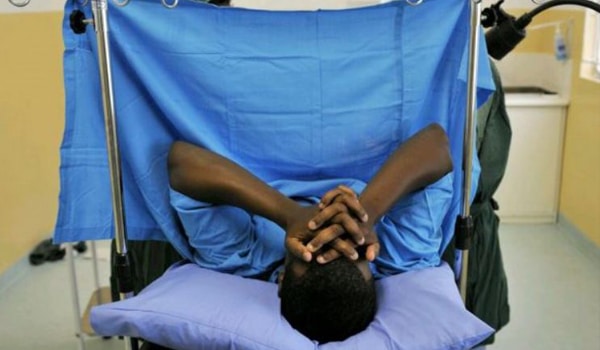
“When the doctor told me that we needed to discuss the results of my pregnancy test, I already knew I was pregnant; because I was just recovering from rape.” It was hard for her to accept the news, since she saw this as an end to her dream of becoming a teacher. I knew, without doubt, that I would be expelled from school and banished from home by my parents. I spent days in agony, thinking about what to do…. Suddenly, I felt only grim determination to get everything out as quickly as possible…. I simply didn’t have the emotional strength to cope with a child of rape.”
“I could not go to the hospital because I knew that abortion is illegal in Uganda, so I confided in a friend who took me to a traditional birth attendant for an abortion. She made a concoction of some herbs and told me to take a full mug. She got a wire, pushed it through my vagina, pricked something and suddenly I felt sharp pain, blood started oozing out of my private parts and I lay unconscious. When I came back to my senses, I found myself in the hospital. My mother told me that I had bled to near death and that when they were called, I was unconscious, alone in the hospital, and that the people who had taken me there had fled to avoid being arrested.” Although this young woman is alive today, she will never bear a child because she suffered incomplete abortion, haemorrhage, infection, uterine perforation and damage to the genital tract and internal organs.
Dr Charles Kiggundu, the President of the Association of Gynaecologists and Obstetricians, says Uganda records about 1,500 deaths from unsafe abortions daily and that the consequences of unsafe abortions cost the country about Shs7.5 billion annually. “90,000 of these induced abortions end up with severe complications, but only half of them are able to access post-abortion services at medical centres. Many others die and those who survive end up with chronic pain, anaemia, infertility and more…. Safe abortion services are available for the rich but hidden from the poor. You must be connected and well-oiled to access the services, I know of many rich people who fly to South Africa to terminate pregnancies and return.”
Mr Moses Mulumba, the executive director of the Centre for Health, Human Rights and Development (CEHURD), says safe abortion is one of the sexual and reproductive health and rights that are fundamental to people’s health and survival, to gender equality and to the well-being of humanity. Human rights activists intend that Government provides access to safe abortion services and liberalises abortion laws where necessary, ensures adolescents have access to sexual and reproductive health information and services without discrimination, addresses sexual and gender-based violence through policies, services and prevention programmes, and engages men to support women’s health, rights and autonomy, and address the SRHR needs of men.
Mr Meddie Mulumba, the Uganda Human Rights Commission (UHRC) Commissioner says that although abortion is legal to preserve the life or mental or physical health of a woman and in cases of sexual assault, many people – including healthcare professionals – are under the impression that abortion is illegal. At UHRC, they are pushing for legal abortion in the country as a human right for every woman and girl and to ensure that legal abortion is treated as a basic human rights issue. “The content and scope of Uganda’s abortion laws needs to be clarified and publicised if health care providers are to be able to provide the critical reproductive health services that are every woman’s fundamental human right.”
Ms Sarah Opendi, the State Health Minister said the ministry is seeking a post-abortion care management policy, and detailing the circumstances under which medical workers can manage safe, legal abortions in hospitals. According to Ms Opendi, the new policy is intended to provide for comprehensive management of post-abortion complications. “Our laws are also clear about abortion, it is criminal but allowed under certain circumstances. We shall stick to the law but guide our country, and the guidelines will also help us towards achieving essential sexual and reproductive health services.”
However, Emma Ainebyoona, the Ministry of Health Senior Public Relations officer, said the Ministry has never passed the policy and guidelines on abortion, and that abortion remains illegal according to the Penal Code Act and the Constitution.
Postscript: Comment from Ndu Makutoane in response to the report: “How sad that women die when they could just access safe abortion services…”
SOURCE: PNL Daily, by David Mafabi, + PHOTO Courtesy, 3 October 2019



